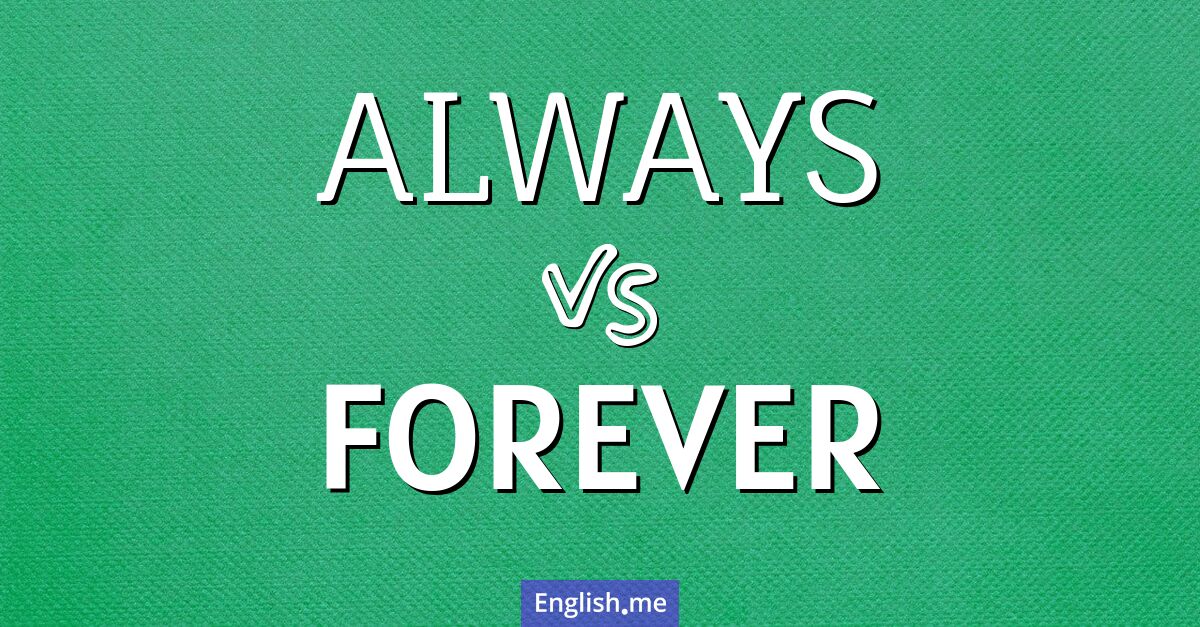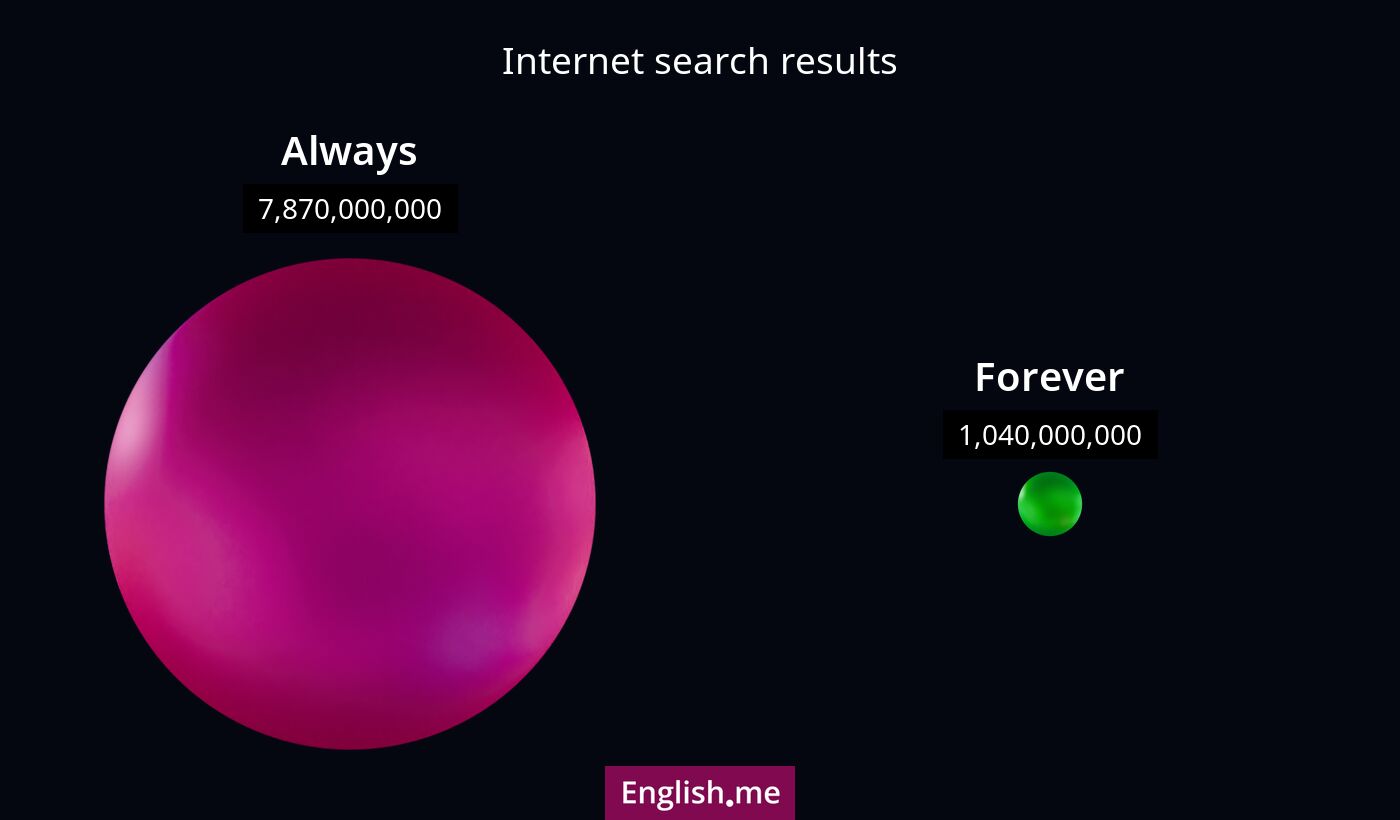"Always" vs. "forever": exploring the timeless duo
Reviewed and edited by  Anwar Kareem 08/10/2024, 05:57
Anwar Kareem 08/10/2024, 05:57
English.me team member

 What is similar?
What is similar?
Both "always" and "forever" refer to concepts of time that suggest continuity or permanence. They can both be used to describe something that does not change over time or remains constant.
 What is different?
What is different?
"Always" is typically used to denote regularity or habitual actions within time, often in the context of daily activities or patterns. "Forever" is used for a more absolute sense of time, implying something that will continue indefinitely without end.
 Which one is more common?
Which one is more common?

 Examples of usage
Examples of usage
Always- She always drinks coffee in the morning.
- He always knows the right answer.
- They always visit their grandparents on Sundays.
- They promised to be friends forever.
- Diamonds are said to last forever.
- I will love you forever.

 English
English español
español française
française italiano
italiano deutsche
deutsche 日本語
日本語 polski
polski česky
česky svenska
svenska Türkçe
Türkçe Nederlands
Nederlands